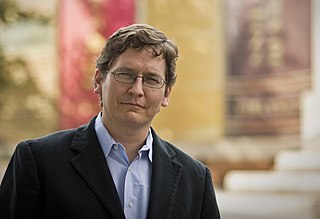A Quote by Matt Blaze
So, in 1993, in what was probably the first salvo of the first Crypto War, there was concern coming from the National Security Agency and the FBI that encryption would soon be incorporated into lots of communications devices, and that that would cause wiretaps to go dark. There was not that much commercial use of encryption at that point. Encryption, particularly for communications traffic, was mostly something done by the government.
Related Quotes
I think it's interesting because the 1990s ended with the government pretty much giving up. There was a recognition that encryption was important. In 2000, the government considerably loosened the export controls on encryption technology and really went about actively encouraging the use of encryption rather than discouraging it.
The reality is that if you - let's say you just pulled encryption. Let's ban it. Let's you and I ban it tomorrow. And so we sit in Congress and we say, thou shalt not have encryption. What happens then? Well, I would argue that the bad guys will use encryption from non-American companies, because they're pretty smart.
There is a concern that the Internet could be used to commit crimes and that advanced encryption could disguise such activity. However, we do not provide the government with phone jacks outside our homes for unlimited wiretaps. Why, then, should we grant government the Orwellian capability to listen at will and in real time to our communications across the Web?
In this age of communications that span both distance and time, the only tool we have that approximates a 'whisper' is encryption. When I cannot whisper in my wife's ear or the ears of my business partners, and have to communicate electronically, then encryption is our tool to keep our secrets secret.
Clipper took a relatively simple problem, encryption between two phones, and turned it into a much more complex problem, encryption between two phones but that can be decrypted by the government under certain conditions and, by making the problem that complicated, that made it very easy for subtle flaws to slip by unnoticed. I think it demonstrated that this problem is not just a tough public policy problem, but it's also a tough technical problem.































